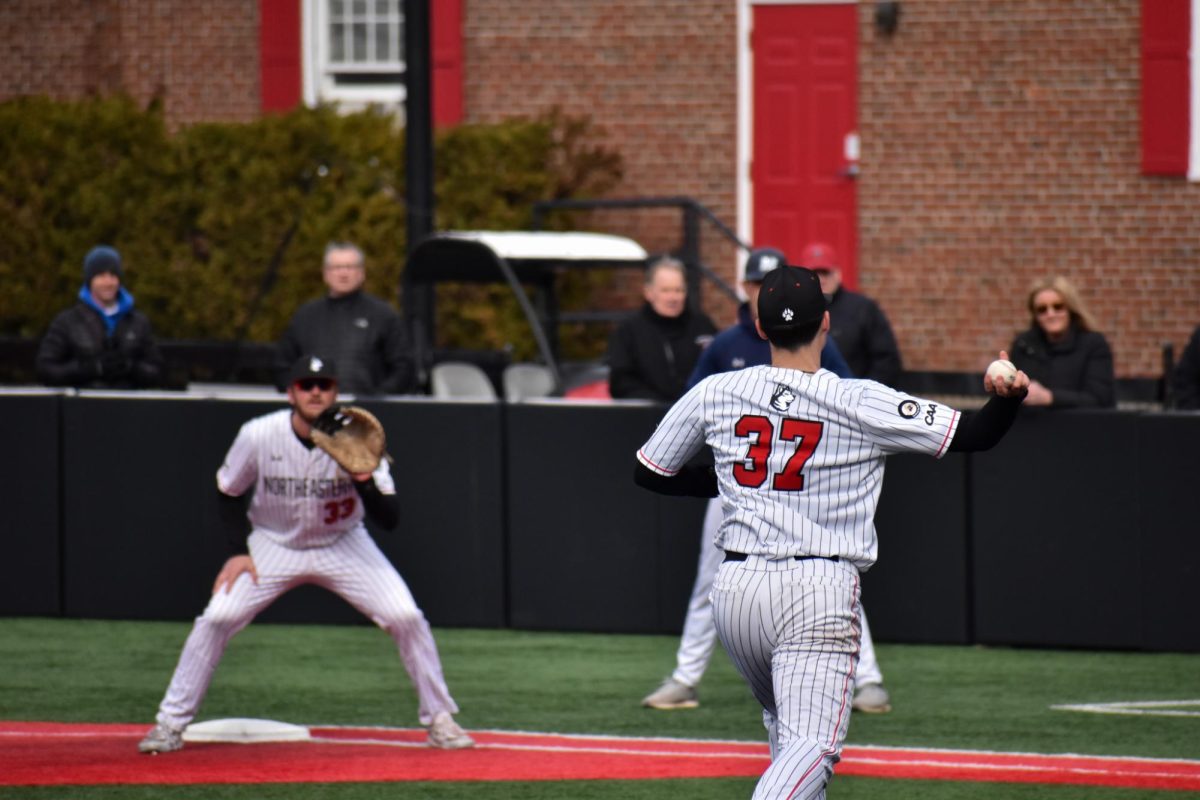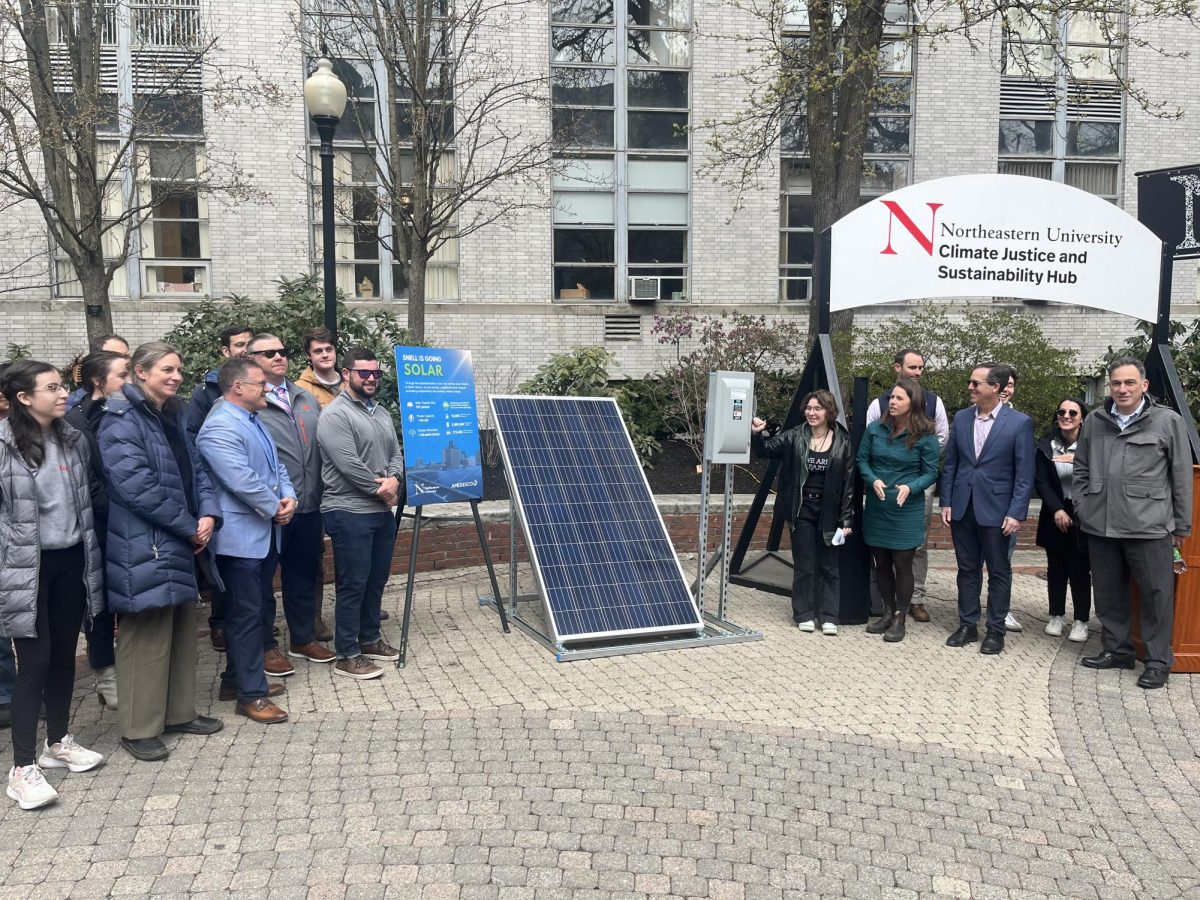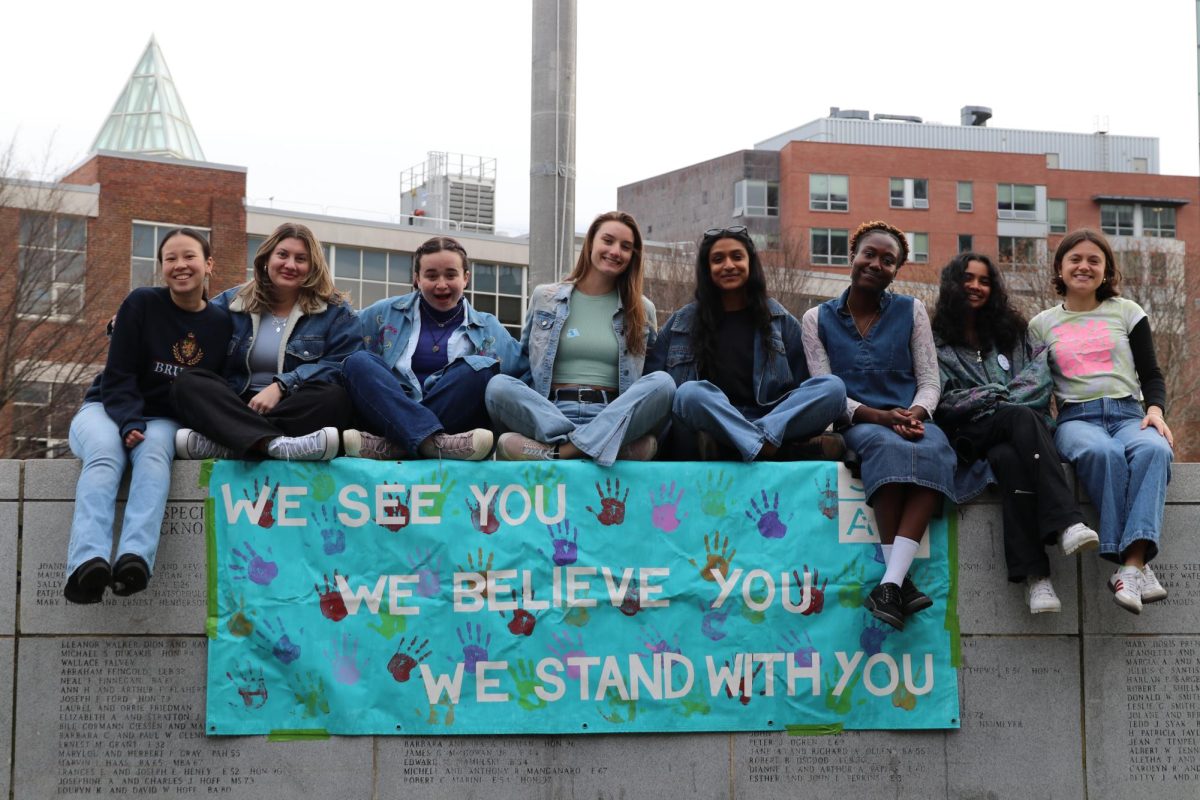Boston residents voiced their opinions and concerns regarding the Biosafety Level-4 laboratory (BSL-4) set to be built on Albany Street, less than two miles away from Northeastern’s campus at the Boston University Medical Center (BUMC).
About 150 residents lined the meeting room inside Faneuil Hall April 24 waiting for their chance to speak.
Those that spoke at the meeting were split on the topic of whether the lab, to be named the National Emerging Infectious Diseases Laboratory, should be built in the South Boston neighborhood. The goal of the meeting was to gather comments on the project, which will be considered in the final environmental impact statement by the National Institute of Health (NIH), said meeting moderator Jamie Fay, of Fort Point Associates.
Almost half of those who spoke at the meeting spoke out in favor of the lab. Those that did said it will create jobs for residents of Boston and that the research done in the lab will help advance science and medicine.
The lab will create 2,100 construction jobs while being built and 1,400 permanent jobs in the lab once it is finished, said Sonal Gandhi, a senior project manager with the Boston Redevelopment Authority.
Boston resident Mynor Perez spoke in favor of the lab and said if researchers didn’t continue on with science despite its opponents, then scientific research would not have reached the level it is at today.
Christina Tilghman, of Dorchester, echoed the concerns of residents who said the lab is being built in an area that is a low-income, densely-populated area. She said she is against the building of the lab because it is not going to solve the problems that are facing her neighborhood.
“It’s not a priority. We have high unemployment, high youth violence. Who is benefitting, because I definitely don’t see it as me,” Tilghman said.
Mary Crotty spoke at the meeting on behalf of the Massachusetts Nurses Association (MNA), which is also against the building of the lab. Crotty said the MNA was concerned with the safety of those living in the area around the lab. According to the MNA’s written statement on the proposed lab, hospital emergency departments are not prepared to contain and treat victims if an outbreak were to occur.
There are currently only four BSL-4 labs in the country, according to the National Institute of Allergy and Infectious Diseases’ Web site, www.niaid.nih.gov. They are located at the Centers for Disease Control and Prevention in Atlanta, Ga., at the United States Army Medical Research Institute for Infectious Diseases at Fort Detrick in Frederick, Md., at the Southwest Foundation for Biomedical Research in San Antonio and at the University of Texas at Galveston. BSL-4 labs research agents “associated with human disease and cause illness through the air (aerosol) or have an unknown cause of transmission,” and the diseases are often life-threatening, according to the Web site. To keep exposure to these sometimes life-threatening agents to a minimum, scientists working in the lab must change clothes before entering and shower before they can leave. Also, facilities for a BSL-4 must be a separate building or located in an isolated zone, according to the Web site.
Three researchers became infected with the illness tularemia in 2004 after they were exposed to it in a BSL-2 at Boston University, according to a report by M. Anita Barry, director of Communicable Disease Control at the Boston Public Health Commission (BPHC).
Tularemia is spread through the inhalation of the bacteria and the symptoms are fatigue, fever, chills, lower back pain, muscle aches and inflammation of the lining in the lungs. It is a severe disease because it has a mortality rate of 30 to 60 percent, according to the report. The source of the tularemia is unknown, and the cases were investigated by the BPHC, the Massachusetts Department of Public Health and the Centers for Disease Control and Prevention. The BPHC reported the cause of the researchers being infected was that they did not comply with safety procedures.
Mary Crotty said she feared if an outbreak occurred, the department of Homeland Security might try to prevent the news of an outbreak from reaching residents who would be infected.
Boston resident Ed Crotty, no relation to Mary Crotty, asked why it was not being built in a less populated area, and said it was highly hazardous to put a lab that deals with highly infectious diseases in a densely populated area. He said he was surprised BUMC wasn’t immediately eliminated as a possible location because of the urban area.
“What could be more obvious?” he said.
Ed Crotty said he was discouraged by the meeting, and said it was run by the institutions that have an invested interest in the project. For him, the building of the lab in that location is a comment on the city.
“If you fund it, they will build it,” Ed Crotty said. “Civic interest is being sold out. This project is such a vote of no confidence in this city.”
Boston University is in the middle of the approval process for the lab and has received city and state approval to build it. BUMC is now awaiting federal approval, which is expected this summer, said Ellen Berlin, director of corporate communications at BUMC. It received the money to build the biolab in September 2003, she said.
Kevin Tuohey, executive director of operations and public safety at BUMC, discussed the safety measures that will be taken with the lab before residents made their comments. They will have employees who have worked with Level-4 labs before, they will be using strict federal standards for the lab and the building will be set back 150 feet from the street so that no threats can get near the building, Tuohey said.














